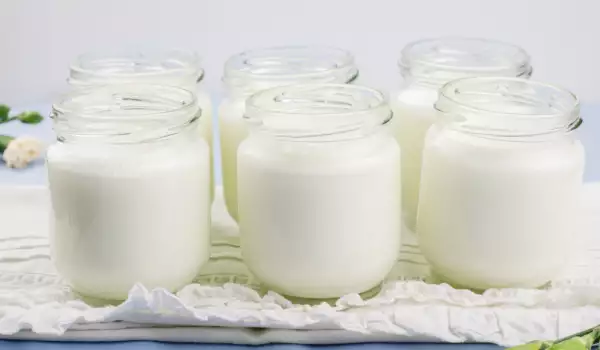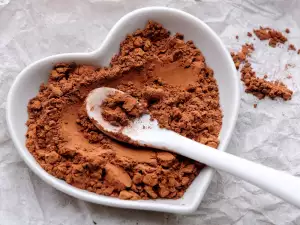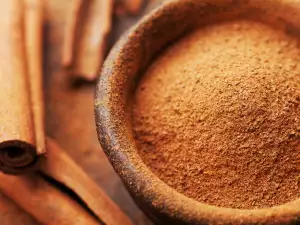The taste of yogurt is slightly sour. It is obtained as a result of lactic acid fermentation. In general yogurt is made in all countries of the Balkan Peninsula, but also in many other countries around the world, because it has very good taste, dietary and medicinal properties.
There are two main microorganisms that enter the fermentation of yogurt - Lactobacillus and Streptococcus thermophilus (Streptococcus thermophilus). If the yogurt stays at room temperature for several days and not in the refrigerator, it becomes sour, because the fermentation continues and its taste, becomes extremely unpleasant and sour.
Composition and nutritional properties of yogurt
The chemical composition of yogurt and any changes that occur under the influence of lactic acid bacteria play a role in determining its nutritional value. In its composition, yogurt is similar to milk.
This is due to the influence of the two bacteria involved in the fermentation process of yogurt. But in many respects it differs in composition from milk. The nutritional value of milk is determined by the nutrients it contains and whether it can be absorbed by the body.
Yogurt has more nutritional value than milk. The milk sugar content in yogurt is reduced to 20-30%. The remaining sugar is a means of obtaining energy.
Yogurt contains a rich amount of calcium. Calcium keeps our heart healthy. It also helps the proper function of the nervous system.
Yogurt also contains:
- Calories - 52;
- Fat - 2 g;
- Cholesterol - 1 g;
- Carbohydrates - 5 g;
- Sugar - 5 g;
- Proteins - 4 g;
Benefits of yogurt
- Helps the normal function of the immune system;
- It is easily absorbed by the body;
- Contains good bacteria - probiotics;
- Helps fight high blood pressure;
- Contains a large amount of vitamins;
- There are benefits for the skin;
- Reduces the symptoms caused by allergies;
- Protects and reduces the risk of colds;
- Helps for better intestinal health;
- Helps whiten teeth;
- Contains ingredients that help fight cancer;
- Participates in building muscles and contains the necessary proteins;
- Helps in the fight against weight gain;
In addition to all the above, yogurt contains potassium - 155 mg, calcium - 121 mg, magnesium - 12 mg, copper - 0.01 mg, sodium - 46 mg, selenium - 2.20 mg, fluoride - 12 mg, phosphorus - 95 mg, zinc - 0.59 mg. The vitamins contained in yogurt are: Vitamin A-99IU, vitamin. B1- 0.03 mg, vit. B2- 0.14 mg, vit. B3- 0.08 mg, vit. B4- 15.20 mg, vit. B5- 0.49 mg, vit. B6- 0.03 mg, vit. B12- 0.37 mg, vit. C-0.08 mg, vit. D- 2 IU, vit. E- 0.06 mg, vit. K1- 0.20 mcg.
Eat something appetizing with yogurt. Our suggestions are:



















Comments